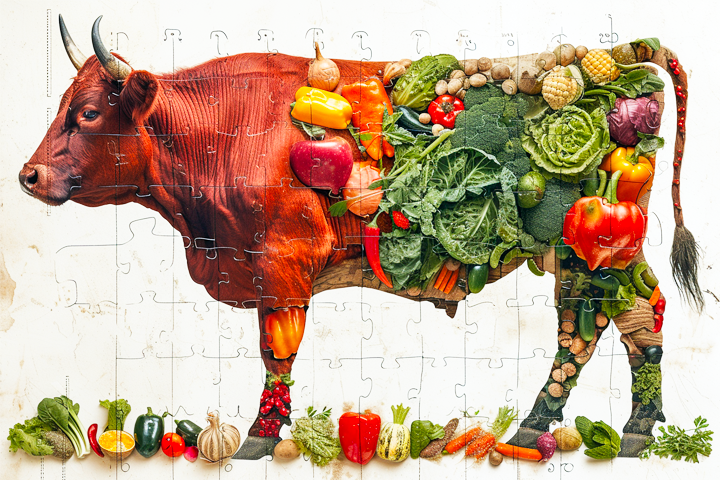
If you’re a vegan, you – and three-fourths of the world – think that when you buy a “vegan” product, it’s completely free of anything derived from an animal. Guess again.
A new study by the Chartered Trading Standards Institute (CTSI) claims that despite that supposition, there is no legally binding definition for the term anywhere in the world.
That means that products that are labeled “vegan” can contain small amounts of eggs or dairy. Interestingly enough, things like fruit – presumably totally vegan – can contain trace amounts of animal-derived products. And a "trace" is enough to kill someone.
And it’s not just the things vegans eat, either. Several years ago, a lawsuit was brought by a vegan customer, who sued Michael Kors after buying a handbag advertised online as vegan, but later discovered it contained leather. In short, as BeVegCertified says, “Vegan claims lack credibility, accountability, and legitimacy.”
Plant-based and Valentine's sweets pose a problem, too
Plant-based food products are also an issue. In 2020, the Advertising Standards Authority (ASA) upheld a complaint against Burger King and its plant-based ‘Rebel Whopper’ burger.
In the ASA’s mind, consumers should be able to take claims of '100% WHOPPER. NO BEEF’ and the term ‘plant-based burger’ as real, meaning that the sandwich had zero beef or animal protein in it at all.
The mistake that Burger King made wasn’t in the patty itself – it was completely plant-based – but where it ran afoul of the ASA was cooking the patty on the same grill as meat products, and the complete burger contained egg-based mayonnaise. Therefore, the sandwich as a whole wasn’t suitable for vegans or vegetarians.
The upcoming Valentine’s Day could be iffy, too, for vegan consumers. For example, in its review of Valentine’s sweets, GoDairyFree says dairy-free Valentine's Day treats might be labeled as vegan, but could still risk cross-contamination or include non-vegan ingredients like eggs or honey, as indicated by "not vegan" disclaimers.
Who’s at risk? How to get around the issue?
There are probably some vegan food producers who are painstakingly careful about not making this mistake. “[But] with one in six people suffering with food allergies, there is a very important need for food to be labeled correctly,” CTSI researchers said.
How do vegans get around this issue? Not easily, unfortunately. But there are some extra steps they can take to be a little more assured that “vegan means vegan.”
The first thing to do is read all labels carefully and look for non-vegan ingredients like milk, whey, casein, lactose, eggs, honey, gelatin, and certain types of vitamin D3.
Looking for certifications could help, too. Again, this will take some work as there are a number of organizations that “verify” whether a product is truly vegan or not, but here are the six certifications you should look for.
Photo Credit: Consumer Affairs News Department Images
Posted: 2024-02-05 12:33:31



















